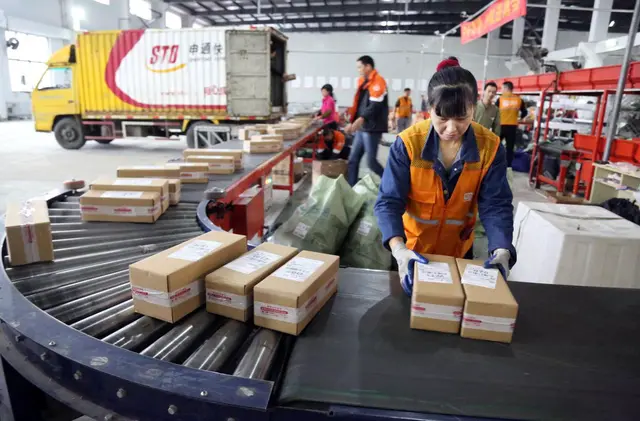The Australian government on Thursday unveiled proposals to regulate bitcoin and put exchanges under the remit of its financial crime authority, as the country looks to crackdown on money laundering and terrorism funding facilitated by cryptocurrencies.
If the proposals are passed, Australia will join China and Japan in officially regulating bitcoin, which has seen its value increase by almost 350 percent within the last 12 months.
However, the currency is at a crossroads. There are divisions over how far regulations should go, while an existential crisis unfolds over whether bitcoin can be a legitimate, functioning currency or simply an anonymous vehicle for investors to stash their cash in for a quick profit.
Buy or sell? Japan's first bitcoin ATM, Suzuka, Mie Prefecture, April 2014.
China: Tackling the 'bitcoin rush'
In China, bitcoin has continued to surge in 2017, with the first two weeks of August alone seeing the price for one bitcoin jump from 18,000 to almost 29,000 yuan (2,695 to 4,340 US dollars), according to Xinhua.
Professor Yang Yixian of Beijing University of Posts and Communication says bitcoin in China has become a vehicle for short term investors looking to make a quick profit, rather than an online commodity.
"80 percent of domestic bitcoin investors are seeking short-term profits, while only fewer than 14 percent see it as a long-term investment," Yang told Xinhua.
China's "bitcoin rush" prompted authorities to take notice earlier this year, with its central bank the People's Bank of China launching investigations into bitcoin in January and February, while authorities warned exchanges that they would be closed down if they failed to comply with China's anti-laundering rules.
There have not been any explicit regulations announced, but the investigations and pressure on bitcoin exchanges have had an effect.
According to Xinhua, this year has seen China host around 15 percent of global bitcoin transactions, a massive decrease on 2016 when the country represented almost 95 percent of all bitcoin trades.
Quartz reports that this fall in bitcoin speculation is down to an end in free trading – Chinese bitcoin investors previously did not have to pay any fees to make trades, although exchanges did charge for withdrawing bitcoins.
Japan: Support and supervision
While China's regulations have cooled down its domestic bitcoin market, new measures in Japan have had the opposite effect.
In April, bitcoin was officially legalized, with major retailers now accepting it as a payment method. The currency has surged in the country as a result.
According to Reuters, in May bitcoin in Japan was trading at "a premium of more than 300 US dollars higher above the global average."
A man walking past a signboard informing customers that Bitcoin can be used for payment at a store in Tokyo, April 2017.
There are plans to extend bitcoin services to some 300,000 retailers in 2017, according to Nikkei Asian Review, and on July 1, Japan abolished an eight percent consumption tax on bitcoin transactions, in another move which will surely attract more people to use the currency.
Japan is looking to combine its support for bitcoin with close supervision. According to Financial Times, "any bitcoin or 'alternative coin' exchange or money transfer business" must come under the supervision of the Japan Financial Services Agency by October 1.
At an existential crossroads
How far Australia will go with its regulations remains to be seen – Justice Minister Michael Keenan has said excessive regulation with not "hinder legitimate financial sectors" – but the different paths taken by China and Japan in terms of controlling the cryptocurrency highlight the divisions bitcoin continues to inspire.
Is bitcoin a risk that needs to be mitigated? Or is it the future, which with support and guidance can become a major part of future consumption and investments? Or should bitcoin stay true to its original nature – an unregulated, anonymous currency independent of any government interference?
The concept of bitcoin itself is at an existential crossroads. More and more bitcoin users view it solely as a safe investment, rather than the currency it was originally designed to be.
Although Japan is encouraging people to use bitcoin as a payment method, the rest of the world is still struggling to warm to the idea of using it to purchase goods and services.
Pedestrians in Shibuya shopping district in Tokyo on July 3, 2017. While more stores on Japanese high streets are accepting bitcoin, the rest of the world has been more reluctant to support the cryptocurrency.
Because of the complex blockchain technology behind bitcoin, which uses math equations to verify transactions and maintain security, the growing number of bitcoin trades has led to long delays in getting payments processed.
This has led to a split in the bitcoin community, with many calling for an upgrade to the bitcoin network to speed up transactions.
On August 2, a rival currency called "bitcoin cash" was launched, promising greater transaction speeds. This move has effectively seen bitcoin's blockchain split in two for the first time – and while so far not having any significant effect on the original bitcoin, bitcoin cash has seen its value rise to over 400 US dollars after a period of stagnation.
It remains to be seen whether or not this bitcoin schism will have more serious implications in the near future.
For the present however, bitcoin continues to rise and rise – hitting a new record high on Thursday of 4,451 US dollars. With more countries likely to follow suit with China, Japan and Australia by regulating the cryptocurrency to some degree, 2017 is set to prove a decisive year in what direction bitcoin takes in the near future.
(CGTN)
 简体中文
简体中文





